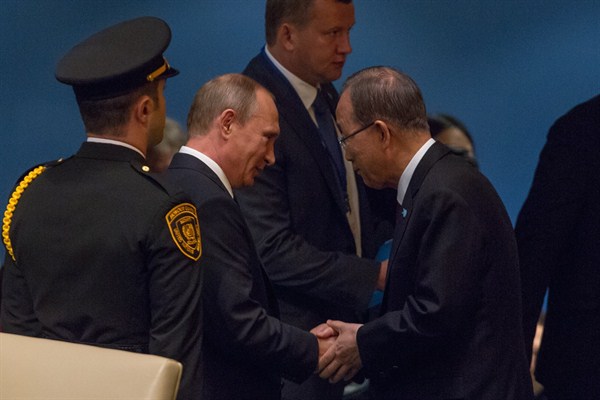Will Vladimir Putin ever be satisfied? As the Russian president has launched his small wars in Ukraine and Syria over the past two years, countless pundits have tried to guess his long-term goals. Some believe that he is a megalomaniac, intent on an open-ended campaign against the West. Others discount him as a nervous nationalist, focused on stabilizing Russia’s disorderly southern flank. Cynics dismiss him as an opportunist, seizing chances to expand his influence whenever they arise.
In New York, many diplomats and analysts affiliated with the United Nations take a fourth view: Putin is a conservative with a profound sense of his country’s dignity.
On this reading, his disruptive behavior is part of a campaign to regain Russia’s lost status as a great power. Versions of this argument are common in Europe too, but have a particular resonance in and around the U.N. because Moscow often links its claims to a special place in the world to its permanent seat on the Security Council.

